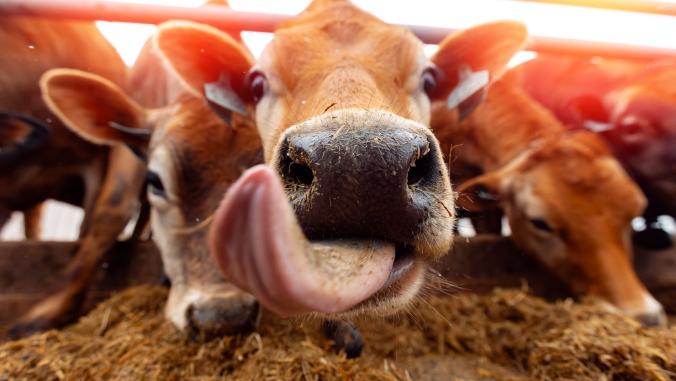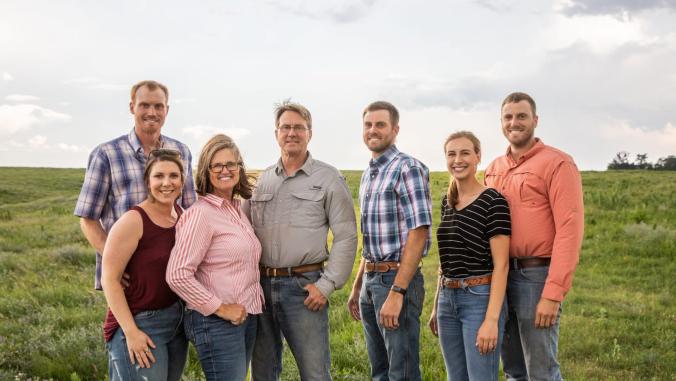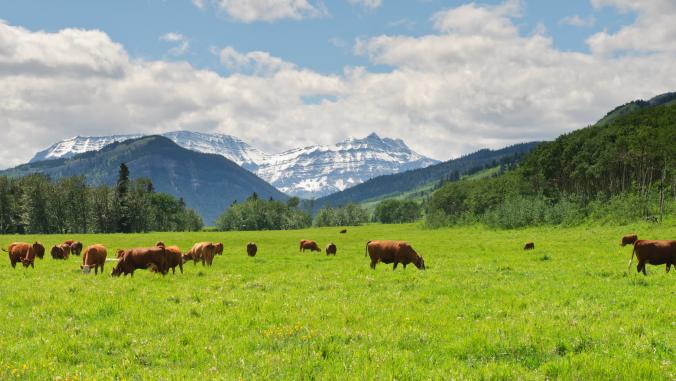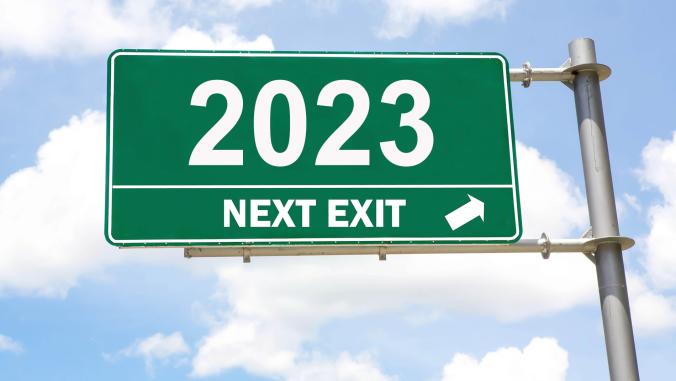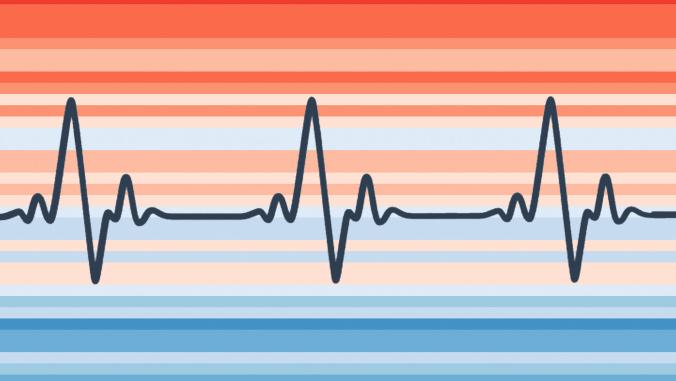Can yerdle turn consuming less into the next big thing?
<p>A former Walmart exec hooks up with a longtime activist and entrepreneur. Can their startup make reusing seem cool?</p>

For all those looking for Black Friday deals, here's one: Get what you're looking for from friends, for free. Participate in a giving spree. Help reduce the amount of stuff out there. And maybe have a magical experience in the process.
Sound a tad idealistic? A little too California dreamin’? What if I told you that the startup behind this idea was built by former executives from Walmart and Saatchi & Saatchi? And that they have big, big plans to create a global brand based on giving, sharing, reducing consumption, and maximizing reuse — precisely the opposite business model of their former employers.
Now, it’s getting interesting.
Meet yerdle (yes, another lowercase company name), officially launched today, Black Friday 2012, the traditional start of the year-end consumer purchasing orgy generally referred to as “the holidays.” Yerdle is a platform for giving away stuff to your friends, and for getting from them the things you need.
OK, you say, I’ve seen this movie before. This is like dozens of other sites for sharing stuff, like Freecycle, Neighborgoods, SnapGoods, Sharehood and SwapStyle. Oh, and Craigslist. Do we really need another?
Don’t compare yerdle to any of those other sites, or you’ll likely raise the hackles of its founders, Andy Ruben, Walmart’s first head of sustainability, and Adam Werbach, who has a long and colorful history, from a college activist, to the Sierra Club’s youngest president, to the head of sustainability for the advertising giant Saatchi & Saatchi. In between, Werbach had a consultancy that worked with Walmart to engage its employees in sustainability. Which is how Werbach and Ruben hooked up.
The two co-founders view yerdle as different from the other garage-sale-style websites. They get their inspiration from social media communities like Facebook, and from retail membership programs like those at Costco, Sam’s Club, and Amazon. They see the potential for growing a business with a similarly iconic brand, customer affinity, quality experience, and global reach.
Like so many online businesses these days, it all begins with your friends.
yerdle is a platform for giving away things away to people you know, or getting things you need from them. By signing up, you access your Facebook network and are immediately connected to all that they have to offer. I’ve been participating in a beta version of the yerdle. Through my Facebook connections I found that I have 102 “friends” on yerdle (out of about 1,400 other beta testers using the site prior to its public launch).
My yerdle friends are offering a range of things. One of them is giving away dozens of children’s items — books, games, clothing and the like — as well as a coffee maker, a pillow, and a set of four Rosie the Riveter coasters.
To be honest, it’s a bit underwhelming. But then again, I’m not looking for anything in particular. If, for example, I needed a high-pressure device to spray paint a fence, I would have found one for free, from someone not far away. If I’d wanted to buy it new, it would have set me back about 60 bucks. Not a bad deal for something I’d likely use just once.
According to Ruben and Werbach, when I spoke with them recently, it’s a big opportunity. “The informal economy dwarfs the formal economy for durable goods,” Werbach told me. “People are already sharing things with their neighbors and friends. It’s just never been connected to software. It’s never been connected to technology. And we can increase the efficiency of an enormously large informal economy that never touches eBay or Walmart right now.”
The missing link, he ways, has been finding stuff specifically from your friends. It makes sense: You trust them, and there’s a decent chance you share their taste or sense of quality. “That friend network, that friend connection, both loose ties and strong ties, allows people to give things for free to people they care about,” says Werbach. “And free is a pretty compelling way to get things.”
It’s also a compelling idea from the perspective of retail, which is Ruben’s domain. “In a world where houses are so much larger, where self-storage is up 1,000 percent, the idea that retailers would not only help you get new items, but would help you make use of the items your friends already own, is a somewhat obvious idea.” And yet retailers haven’t tapped into that opportunity.
Yerdle sees itself as a new kind of retailer — a budding, next-Gen Walmart, if you will — but rather than storing things in warehouses and stores, like Walmart and others do, yerdle’s warehouses are your friends’ closets, attics, and garages.
But it’s not just about facilitating sharing. Ruben and Werbach talk a lot about “customer experience.” Says Ruben, who helped launch Walmart’s grocery delivery service: “Think of a Costco membership, an REI membership, Sam’s Club, or Amazon Prime. Those retailers are able to be more focused on what you need, and it takes them away from the need to sell you more and more things.”
Werbach elaborates: “Yerdle will feel just like traditional retailer, only better. We see this to be more akin to Amazon.com in terms of high service, high customer satisfaction to the point of a kind of approaching a magical experience with people.”
As you might expect, there’s an underlying sustainability mission to all this. “Right now, every time you want something, something new needs to be made for you to get that thing, and that’s totally messed up,” says Werbach. He and Ruben envision a huge opportunity to work with manufacturers to keep their products in service longer. “For example, we’ve worked closely with Patagonia. Their baby gear is rated at a minimum of eight years of use, though things tend to last about 15 years, and no baby stays in that stage for that long. The question is how do you get more use out of the gear, and what is the premium to the manufacturer for that longer use before a product goes into the waste stream?”
Ruben sees this as an opportunity to supplement companies’ existing efforts to reduce waste in their products and processes. “When you look at the opportunity to reduce the waste of an item by 5 percent compared to the opportunity to get twice as much use out of it, we need both of those, but the big one sitting right in front of us is the one that very few people are taking on is to focus on. Let’s get two or three times the amount of use out of these things.”
Of course, getting people to accept sharing as an acceptable alternative to buying something new may be an uphill battle. After all, haven’t we trained consumers for decades to seek out the newest, coolest thing? Werbach contends that not everything fits into that newest-coolest mold. “By our research, 70 percent of retail transactions are less than $100, and not technology-dependent,” he ways. “They don’t need to be the newest thing. Those are the ones that we’re after. People will still buy their iPhone 5s, but there are a lot of things that don’t fit in that category.”
“The vision that we have is not only to make the existing products better, but to have a world that requires making 20 percent less things because we’re making better use of the things that we have,” says Ruben. “And the things that we do make get made and designed better so that they can be used longer. And the 20 percent becomes 30 percent, becomes 40 percent, and we become smarter and smarter and more and more efficient with how we’re able to make and use the things around us.”
It’s a compelling vision, to be sure. All of us have so much stuff sitting around — I know I do — that others could make use of. To the extent I’m keeping that rarely-used circular saw around “just in case,” I may find solace in knowing that such a device is now more easily findable from one of my friends. So, maybe I can set it free.
You’re probably wondering, as I did, how all this becomes a business for yerdle. Helping people share stuff at no cost — even with a magical experience — isn’t exactly a road to riches. Ruben and Werbach don’t seemed particularly bothered by this. Like so many online entrepreneurs before them, they believe that the revenue model will come, once you build a critical mass of fanatically loyal customers.
For example, some things are simply too nice to give away, and you’d prefer to sell them to someone you know. (Who likes selling things to strangers, anyway?) So, transaction fees could become part of the model. There’s also the potential to help manufacturers adopt their products to be more effectively shared, or to provide data to manufacturers and retailers about how people use certain products — all revenue opportunities. All that will figure itself out in due time, say the co-founders.
For now, yerdle is starting small. It’s currently available only in the San Francisco area — Ruben and Werbach’s home turf. Early next year, it will add a second market, Brooklyn, N.Y., with many more to follow. By Black Friday 2013, say Ruben and Werbach, yerdle will be available nationally, “and the question will be whether we’ll be international,” adds the ever-optimistic Werbach. These guys — both veterans of global companies — have global ambitions.
“We’ve both been in very large companies,” says Werbach. “This is obviously a small company at this point, but the opportunity that we’re talking about we see as that big. This makes so much sense for people, given the things that we all have access to and how we can put those to better use.”
Come to think of it, Walmart was once this small, too.

